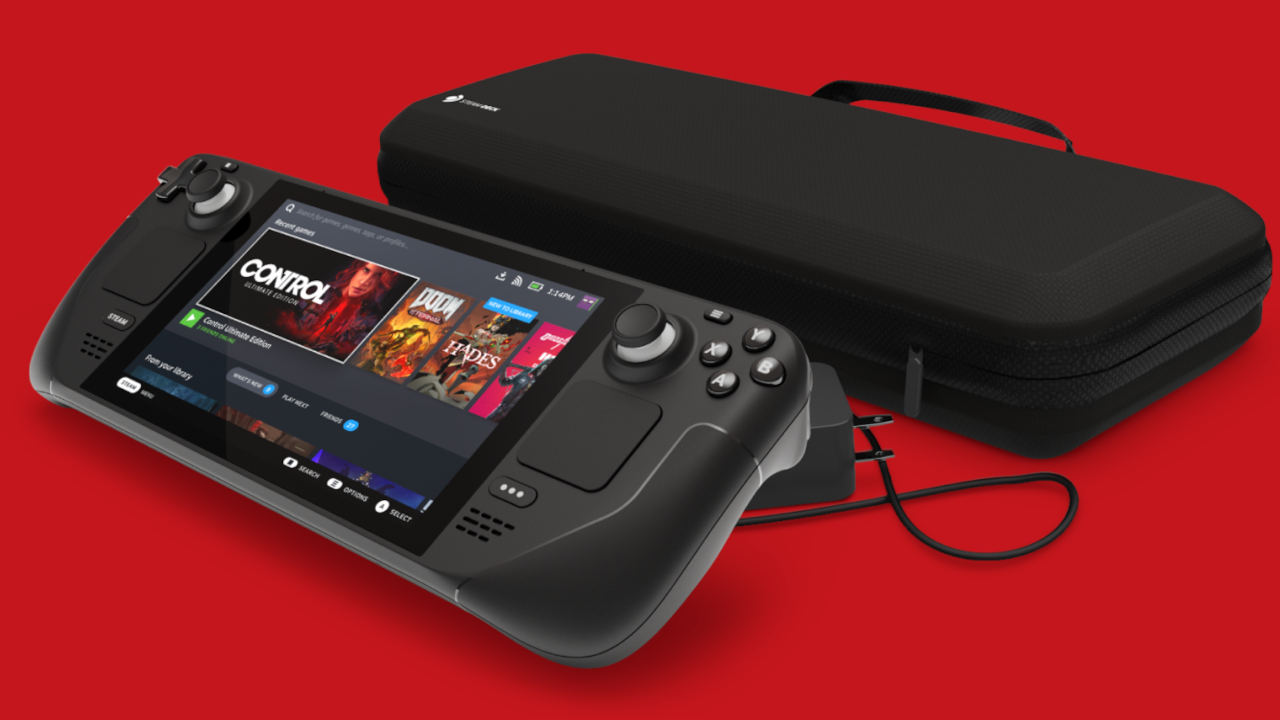The Steam Deck sold out in minutes, which suggests it's a very good idea
But gamers have suffered enough with long waits, haven't they?

Anyone thinking that buying a Steam Deck was going to be a neat way to sidestep the stock problems facing the PS5, Xbox Series X and PC graphics cards is being brought back to earth with a crash. The new handheld rival to the Nintendo Switch has sold out in hours, and delivery estimates on the top-end model are now Q2, 2022.
That’s frustrating, on the one hand, because this could have been a good way to get access to a premium handheld console with a colossal potential games library. But I suppose it’s also good news. Not just for Valve, but for people like me who love PC gaming. I’m not one for the consoles, on the whole, I would rather spend my cash on PC hardware although that’s a pipe dream right now too.
But the Steam Deck offers something else, a way to entice console gamers into the world of PC gaming. Although a lot of people buying are likely to be PC gamers already, there’s a good chance that people frustrated by the lack of console availability might have decided to give the Steam Deck a go.
- Steam Deck pre-order guide: how to reserve Valve's handheld PC (it's complicated)
- Steam Deck is the new handheld gaming PC from Valve
Because the Steam Deck uses the Steam library, everyone who buys one will end up with a collection of games they can enjoy both on the Deck, and perhaps on a PC once they’re hooked. I am, obviously thrilled about this, perhaps less excited about increased competition to get an RTX 3070 though.
So selling out quickly was a clear indication there’s a market for this product. That said, there’s no indication how many units Valve has planned to produce. It may have opted to only build a reasonably modest number of devices, which would explain why they all vanished. Anecdotally though, my Twitter friends seem to have been very keen, although that’s heavily skewed towards tech-loving people, so the wider picture will only be clear later when we know how many Valve actually sold.
This little machine could be a big threat to all sorts of companies too. I doubt Nintendo is too worried, but I wonder if gaming phone manufacturers are likely to feel the pressure. If this machine, with its clever Linux-based operating system and even more clever set of tools to make Windows games work on it, ends up doing well, then perhaps more powerful console hardware could come along later.
The Deck is, after all, running on similar hardware to consoles. It might be a little less high-end, but the AMD-powered APU is something both Sony and Microsoft have used in their next generation machines, and that does suggest that Valve’s ambition may be far more than this little console.
Get all the latest news, reviews, deals and buying guides on gorgeous tech, home and active products from the T3 experts
I’m excited to see how the Steam Deck is received when it ships toward the end of the year. I haven’t ordered one, I can’t wait until 2022, but T3 will been on the lookout for a review loaner as soon as they’re available.
Ian has been involved in technology journalism since 2007, originally writing about AV hardware back when LCDs and plasma TVs were just gaining popularity. Nearly 15 years on, he remains as excited about how tech can make your life better.